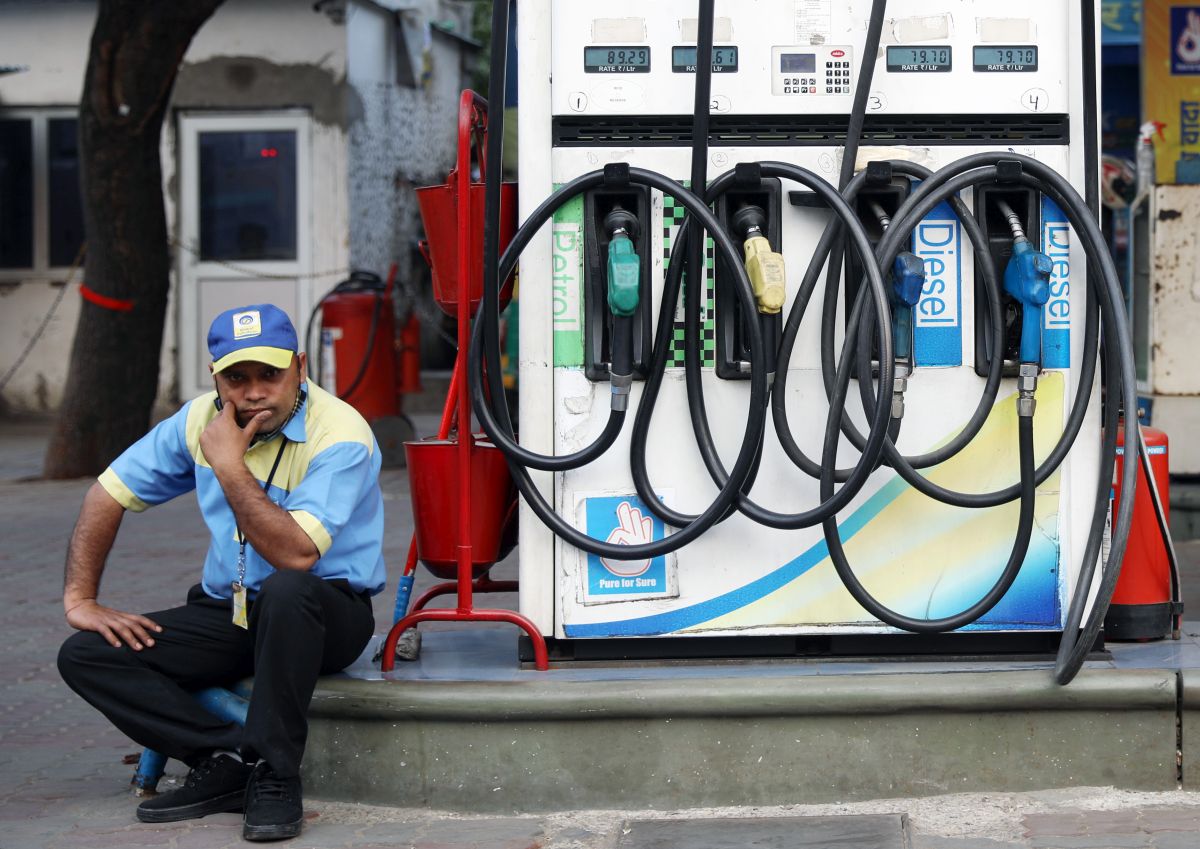‘Petroleum Prices Will Rise After Date Of Counting’
‘The signal is crude oil prices will rise, I am cutting my subsidy. Be prepared, prices will rise.’
IMAGE: A Bharat Petroleum fuel station in New Delhi. Photograph: Prabhat Mehrotra/ANI Photo
Former finance minister P Chidambaram tells Indivjal Dhasmana that the government has contained the petroleum prices due to the assembly elections.
But cutting the petroleum subsidy gives a signal that prices will rise and such signals were given by cuts in fertiliser and food subsidies too, he says.
The Budget’s focus is on capex-led economic recovery. What is your take on this strategy in the context of the economy struggling to come out of the Covid-induced slowdown?
Our problem is not lack of capital. Our problem is lack of jobs.
In India, unemployment is at a very high level.
The urban unemployment rate is about 8.2 per cent.
The rural unemployment rate is about 5.6 per cent, which is mostly because of the disguised unemployment.
What we need are job-creating investments, not capital-intensive investments.
We have abundant capital, we don’t have jobs.
Therefore, I protest, I reject an approach which is based on capital-intensive investment.
In your press statement, you have criticised the Budget on fiscal prudence too. Had the Budget addressed so many concerns as underlined by you, would that not have widened the Centre’s fiscal deficit?
I am not unhappy that they did not compress the fiscal deficit too much.
This is the time when there must be fiscal liberalisation.
You are reiterating that you will reach the four per cent fiscal deficit target in 2025-26, three years from today.
If that is your goal, this compression of 0.5 percentage points for the next financial year is not sufficient.
You will have to still compress about 2.5 percentage points in the remaining two years.
How are you going to do that?
For this year I am willing to live with 6.9 per cent of fiscal deficit.
You also said huge market borrowings will crowd out private investments but the government believes that it will crowd in these investments. How do you view the government side?
This is an unusual economic theory. So far I have heard every (RBI) governor, finance minister saying that if the government borrows too much from the market, it will crowd out private borrowings because the private sector will not have enough money to borrow in the market and even if money is available interest rates will be high.
This is what we have heard for the last 20 years.
Today, you turn it around on its head and say if the government borrows more, it will crowd in private investments.
This is illogical. Either what you said for 20 years was wrong or what you say now is wrong.
I think what you say now is wrong.
According to your press statement, every kind of subsidy was cut in the Budget. Don’t you think this was part of fiscal prudence?
Absolutely wrong. People are suffering from high inflation today.
WPI (inflation) has crossed 12 per cent and the CPI (inflation) is touching the upper limit of six per cent.
This is not the time to cut subsidies when inflation is high, people have lost jobs, lost incomes and they are suffering because of the pandemic.
Crude oil prices have touched $90 a barrel, so petroleum prices will normally rise.
The government has contained it because of the elections.
You take it from me petroleum prices will rise after the date of counting.
You have a petroleum subsidy of Rs 6,517 crore in the current year and you are reducing it to Rs 5,813 crore in the next year. What is a signal?
The signal is crude oil prices will rise, I am cutting my subsidy. Be prepared, prices will rise.
The same thing is with fertiliser. So what do they tell the farmers?
Brace yourself, fertiliser prices are going to rise.
There is the cruellest cut in the food subsidy.
The current year subsidy is Rs 286,469 crore.
You have cut it to Rs 206,831 crore, a cut of Rs 80,000 crore, about 40 per cent.
What does that mean? Either you will reduce the ration quantity, which is difficult. Therefore, you will increase the price.
You also said there was no word in the Budget about raising resources from the 142 super rich.
I am not against wealth creation. I even support wealth accumulation because new wealth is new capital and new capital is new investment.
The point is at what point wealth creation should stop.
Put some ceiling, some cap somewhere. What is this Rs 53 trillion wealth for 142 people.
This means Rs 37,000 crore is the average wealth (per person) of these 142 people.
This will perhaps grow this year and next year. When will this stop?
If there are so many wealthy people beyond our imagination, you should tap into that wealth.
Feature Presentation: Aslam Hunani/Rediff.com
For all the latest business News Click Here

